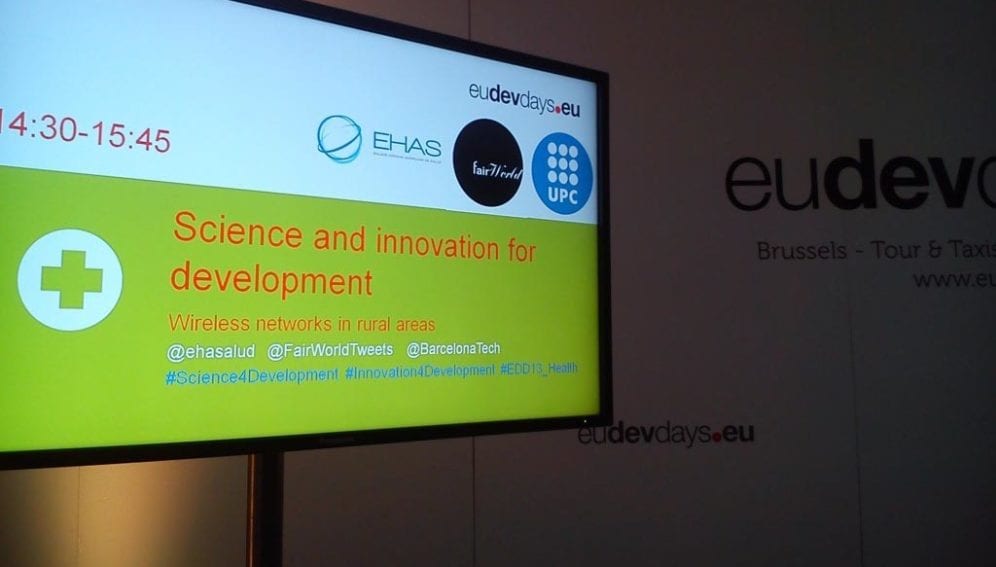By: Mićo Tatalović
Send to a friend
The details you provide on this page will not be used to send unsolicited email, and will not be sold to a 3rd party. See privacy policy.
By looking at this year's programme for the European Development Days, which drew some 5,000 participants from around the world to sketch out a new development agenda for 2015-2030, you could be forgiven for thinking they totally missed out on the importance of science.
None of the main sessions that were webstreamed focused specifically on science, despite research being key to past, current and likely future advancements in the fields discussed: health, food, education, the millennium development goals, land and poverty.
But science did feature in many of the smaller, breakout sessions, from discussions on transmitting internet signals via unused TV frequencies (so-called white space internet access), to voice access to internet via mobile phones for rural communities, and Africa's first soil atlas. Even an educational animation that features a ‘climate crab’ character was mentioned as a good example of science communication in the Pacific region. Another session looked at how natural ecosystems can help reduce poverty and contribute to development.
Discussions on data for development also featured statistics and data. It was good to see that SciDev.Net has already covered most of the issues — and even specific initiatives — that were featured at the meeting.
There was only a single sessions that had 'science' in the title, which is perhaps a good thing because it avoids billing it as something separate to mainstream development. Indeed, many sessions took science for granted and built from there. For example, a session on climate risk assessments started from acknowledging science gives us fairly accurate 3-month weather forecasts and it was the humanitarian sector that needs to figure out how to change their practices to make the best use of that information. Indeed, the Red Cross is now working on innovating to do just that.
So, science was everywhere, underlining so many of the discussion, but rarely acknowledged as being key to development issues at hand. Is that a good thing? I leave it to the reader to decide.














